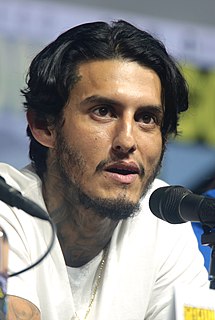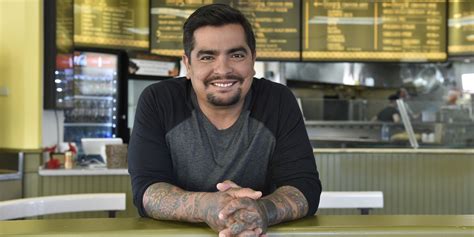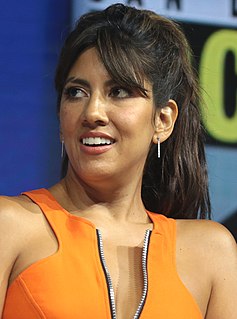A Quote by Carlos Mencia
Related Quotes
I grew up across the street from, you know, the Villarias, which was a great Mexican family there. In fact, there was three houses right across the street from me. So, day and night, I listened to Mexican music, and I'm sure, you know, my guitar playing, singing, writing, whatever, has a lot of Mexican flavor there, but it comes natural.
Let’s get one thing straight: Mexican food takes a certain amount of time to cook. If you don’t have the time, don’t cook it. You can rush a Mexican meal, but you will pay in some way. You can buy so-called Mexican food at too many restaurants that say they cook Mexican food. But the real food, the most savory food, is prepared with time and love and at home. So, give up the illusion that you can throw Mexican food together. Just understand that you are going to have to make and take the time.
There is a heavy Mexican Catholic streak in my movies, and a huge Mexican sense of melodrama. Everything is overwrought, and there's a sense of acceptance of the fantastic in my films, which is innately Mexican. So when people ask, 'How can you define the Mexican-ness of your films?' I go, 'How can I not?' It's all I am.


































